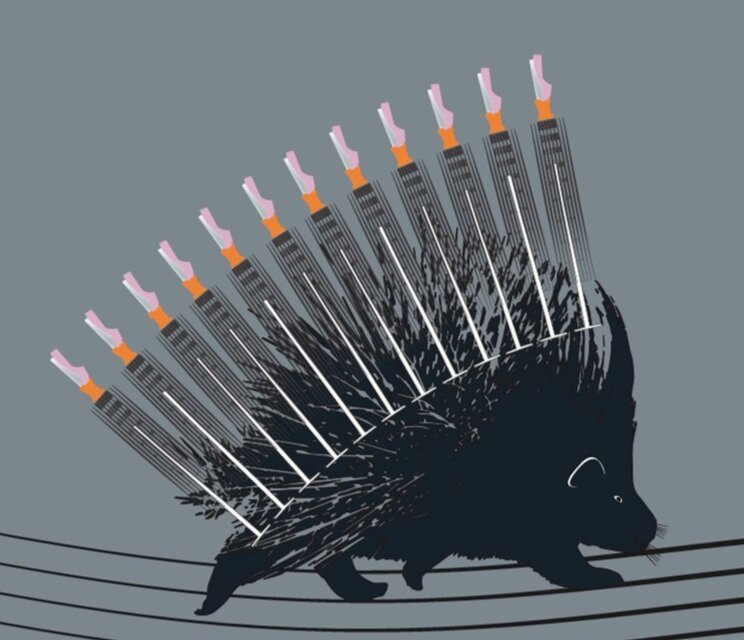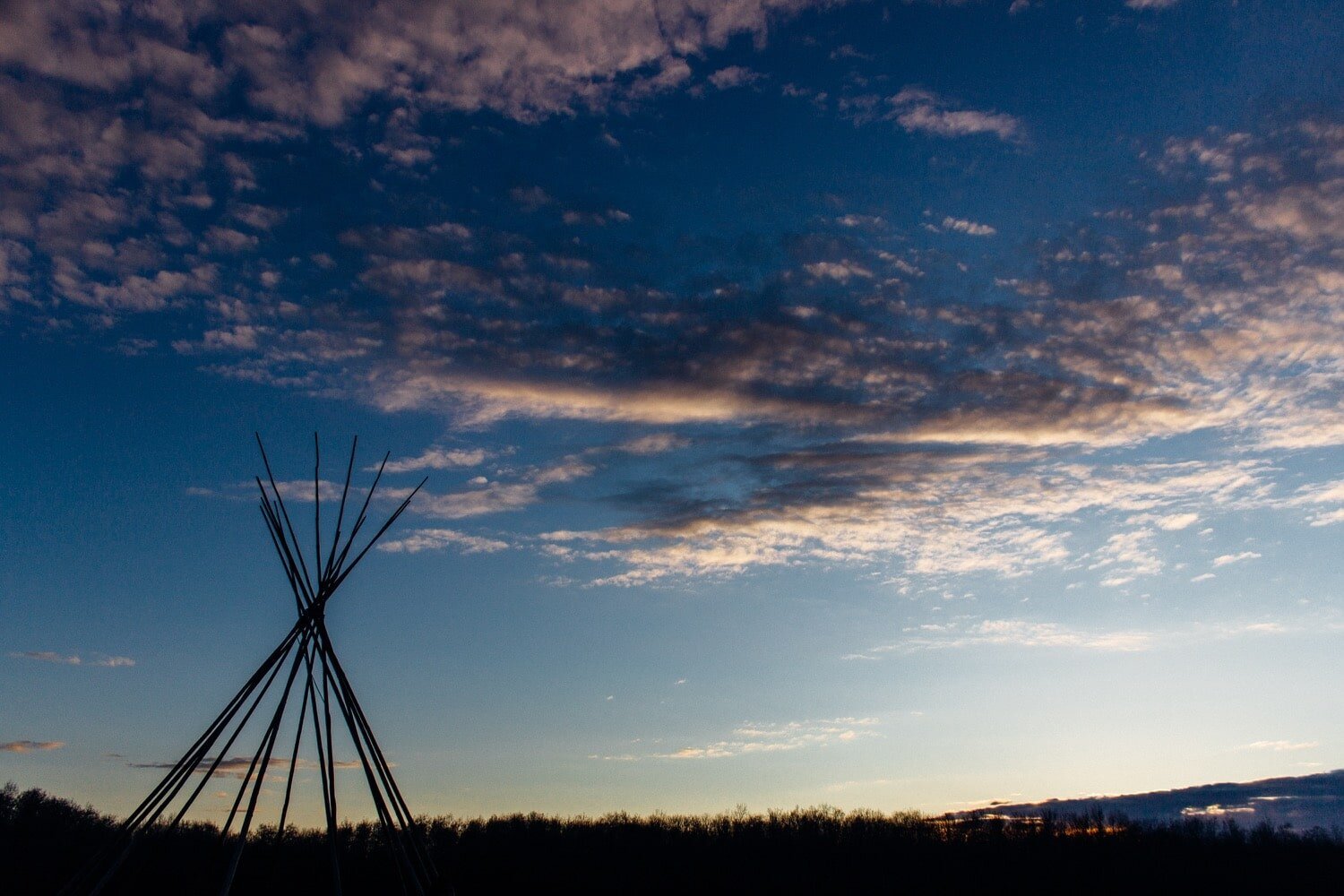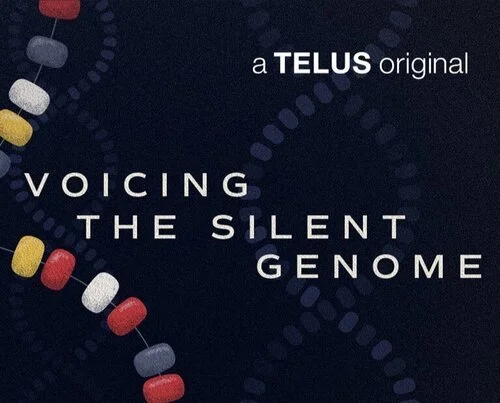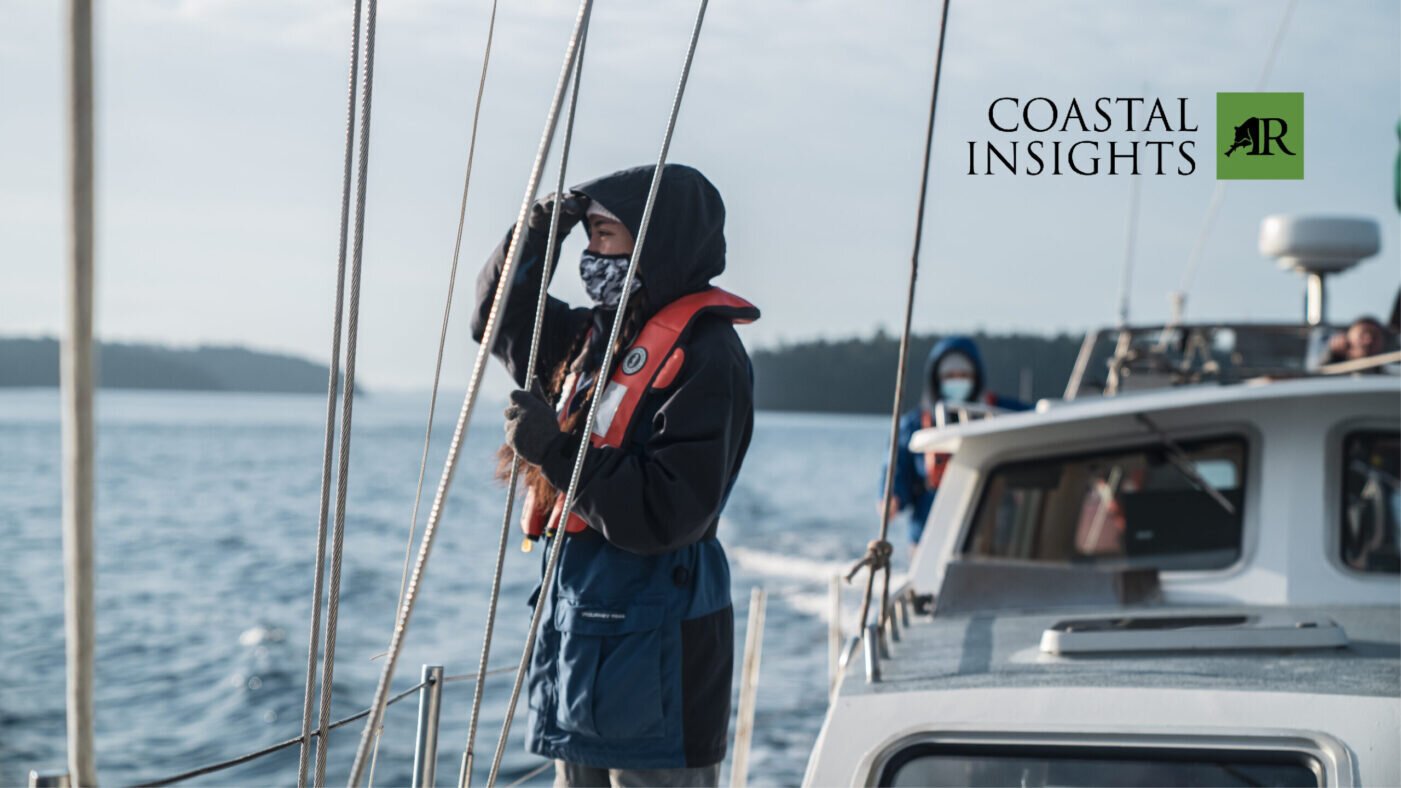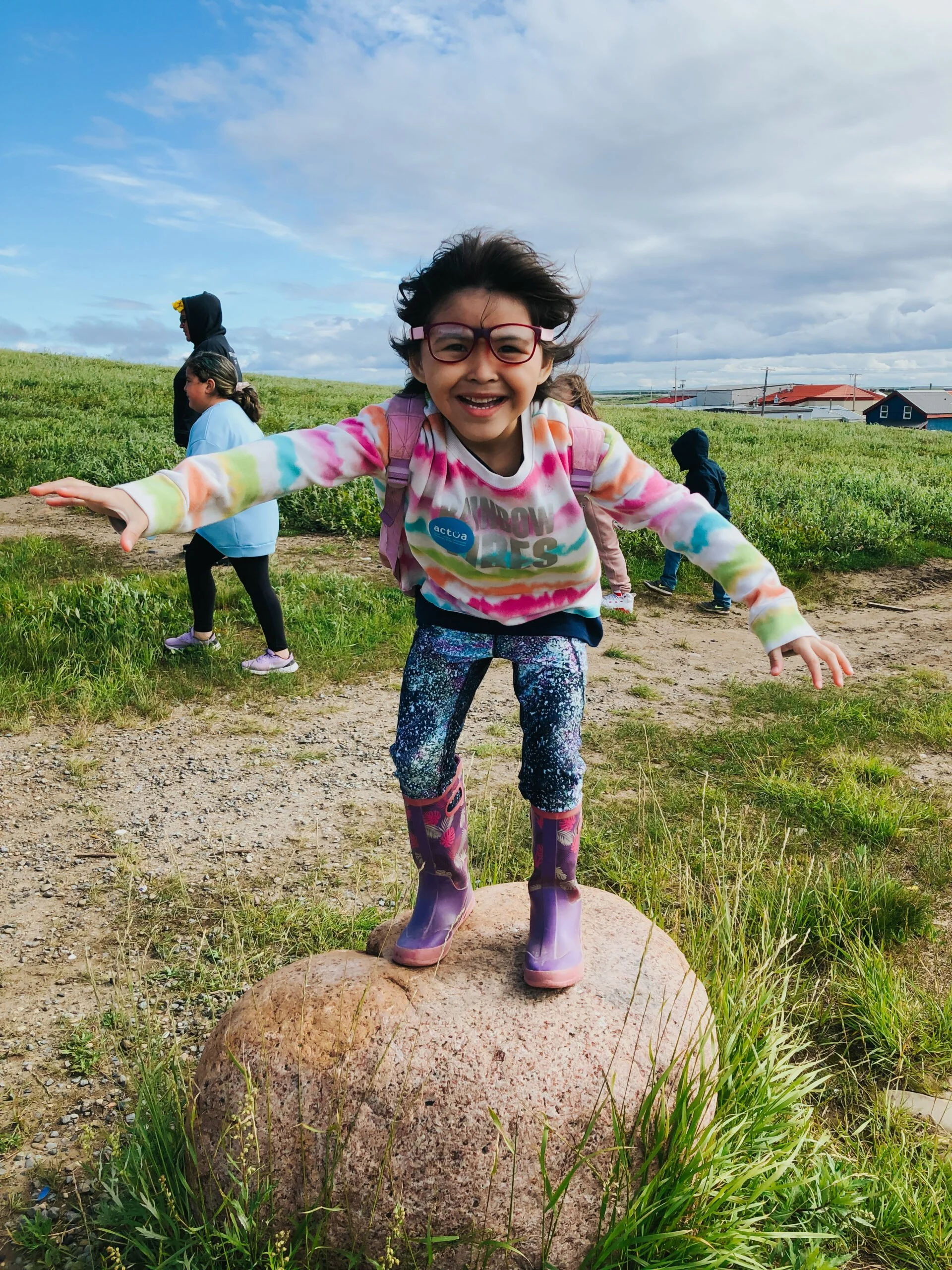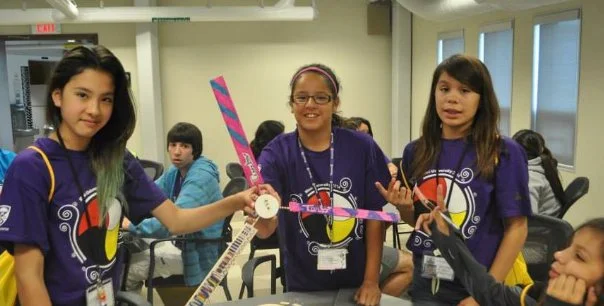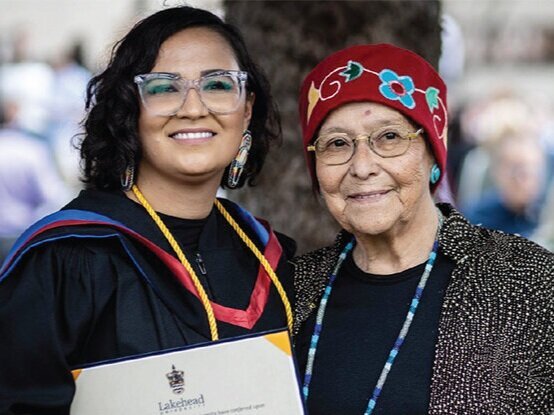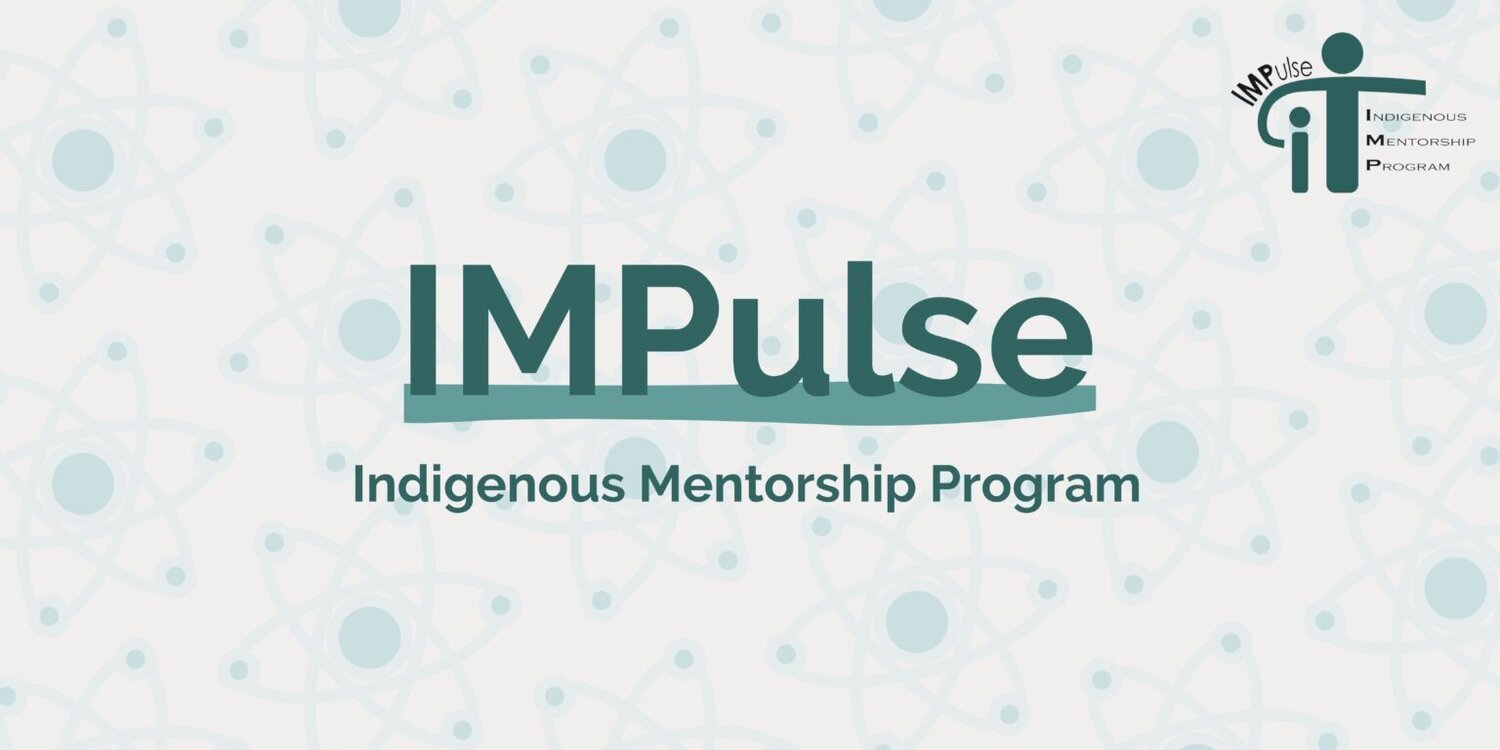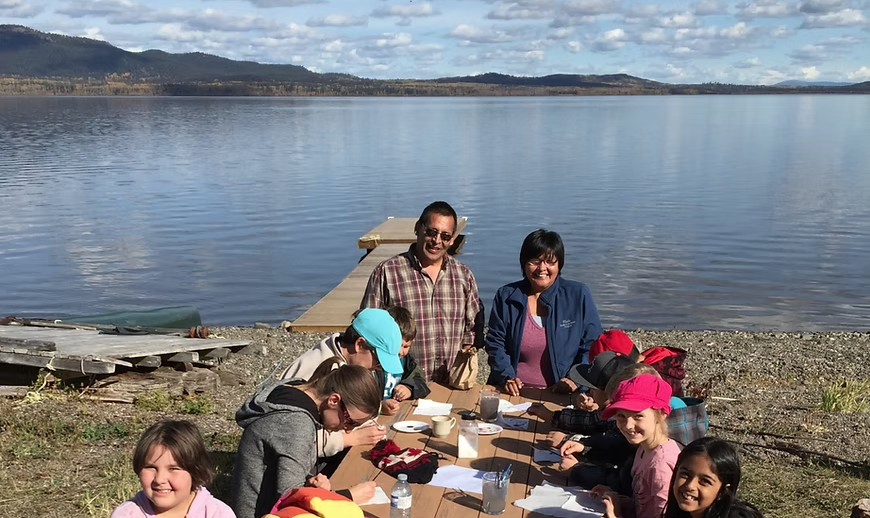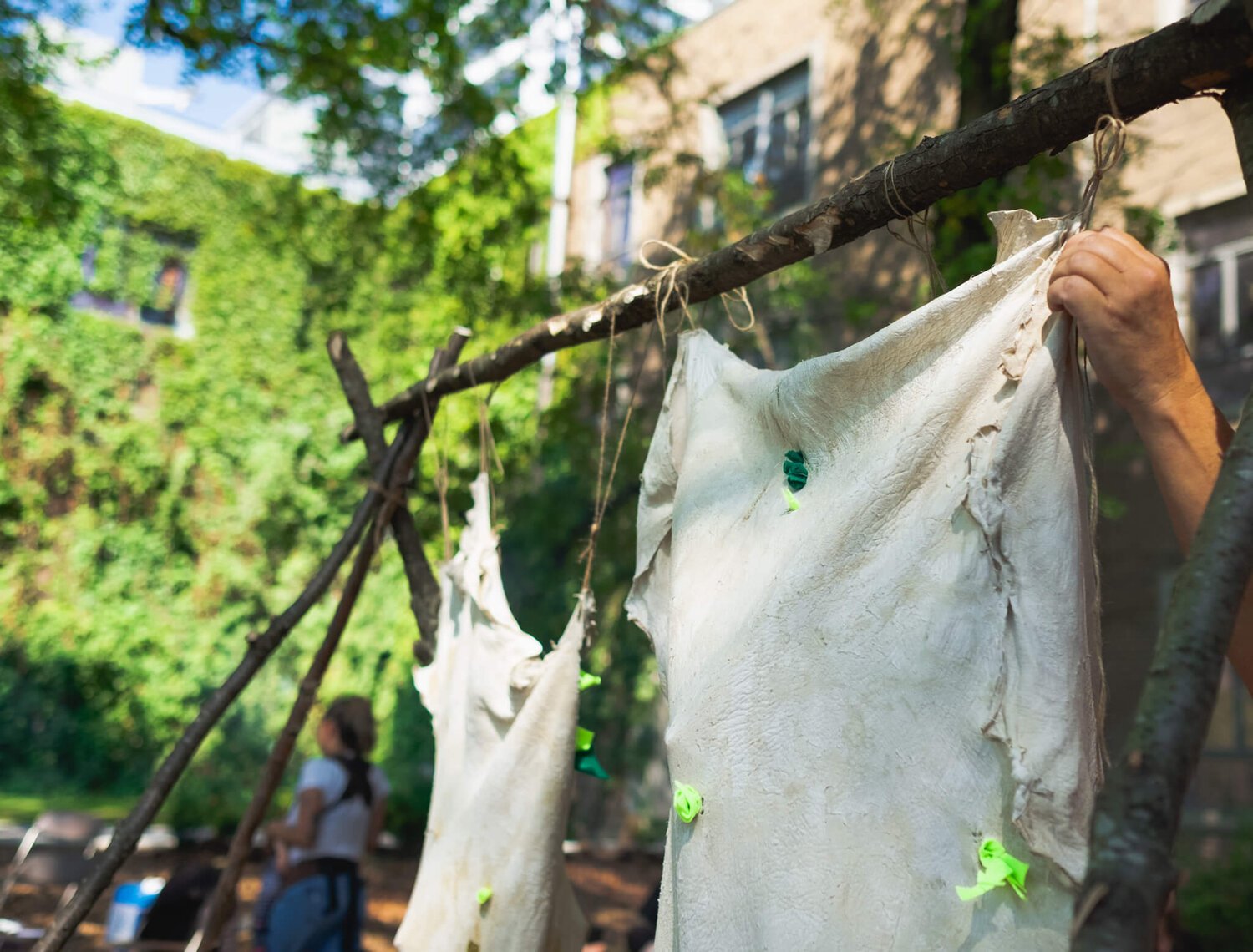
Indigenous STEM Resources
September 30th 2021 marked the first National Day for Truth and Reconciliation, also known as Orange Shirt Day. As we continue to reflect and learn, we want to highlight a few Indigenous-led or centred science, technology, engineering and math (STEM) initiatives, among many, that may be of interest to our fellow science-enthusiasts. Some are courses, some are youth focussed activities, all are meaningful. Explore below and let us know of any other Indigenous-led STEM initiatives you’ve come across by email.
Read/Watch
-
![]()
Indigenous Engagement Committee Resources
The Indigenous Engagement Committee (IEC) is dedicated to facilitating engagement and relationships with Indigenous communities, and that can partner with existing groups working to promote STEM programs that embrace both Western and Indigenous approaches. The goals should be to listen to Indigenous communities, to discover mutual interests, and to identify opportunities to learn from and support each other.
These resources are a collection of Indigenous astronomy and engagement initiatives
-
![]()
Atchakosuk: Ininewuk Stories of the Stars
This article written by science facilitator at the Manitoba First Nations Education Resource Centre and Indigenous star lore expert, Wilfred Buck, explores 'atchakosuk' – the spirit lights up above. Ininewuk (Cree) mythology posits that constellations and stars that are prominent in the northern skies are understood through perspectives that are unique to the Ininewuk. The subject matter contained herein is intended to provide students and educators associated with First Nations Education with an introduction to Ininewuk perspectives of astronomy. In this article, the Ininewuk language is in the Swampy Cree dialect.
-
![]()
Relearning the Star Stories of Indigenous Peoples
This episode of Science Friday explores how the lost constellations of Indigenous North Americans can connect culture, science, and inspire the next generation of scientists. In conversation with Wilfred Buck, a science facilitator at the Manitoba First Nations Education Resource Centre and an Indigenous star lore expert.
-
![]()
Indigenous Star Knowledge Symposia
This series of local and international gatherings was organised by Ingenium in collaboration with the Institute of Indigenous Research and Studies at the University of Ottawa. Hosted on traditional Algonquin Anishnaabeg territory, this series of symposia combined spiritual ceremony, presentations, activities and dialogue, both online and on the land. The symposia featured gatherings of Indigenous Knowledge Keepers, Elders, educators and scholars to share and exchange towards reclaiming, preserving, and revitalizing Star Knowledge with Indigenous communities worldwide.
-
![]()
7 Indigenous People in STEM You Should Know
A blog post on Simon Fraser University's Westcoast Women in Science, Engineering and Technology highlighting Indigenous Two-spirit folks and Indigenous women in Science, Technology, Engineering, and Math (STEM) and their fights for their traditions to be recognized within STEM.
-
![]()
Meet the scientists embracing traditional Indigenous knowledge
From grizzly bears in areas undocumented by Western science to a possible new fast-running subtype of caribou, traditional knowledge is enriching scientific information about our natural world. Learn more in this engaging in-depth article from The Narwhal.
-
![]()
Voicing the Silent Genome
Almost no genomic research has been done for Indigenous populations in Canada. Dr. Nadine Caron, the first Canadian female general surgeon of First Nations descent and co-director of the Centre for Excellence in Indigenous Health, and her team at the Silent Genomes Project are changing that with their groundbreaking project. Dr. Nadine Caron partners with TELUS STORYHIVE to tell her story about it.
-
![]()
Raincoast Conservation Foundation’s Coastal Insights Season 2
Raincoast Conservation Foundation’s Coastal Insights Season 2 collaborates with their First Nations partners for a new and fascinating online learning experience that takes a “two eyed seeing” approach to understanding British Columbia’s coast and conservation challenges weaving together the strengths of Indigenous and Western knowledge systems to understand nature.
-
![]()
Indigenous leadership in conservation
Indigenous peoples have wide-ranging knowledge of the land and its ecology. Through collaboration with Indigenous partners, Parks Canada and Canadians are benefitting from traditional knowledge systems that have been handed down over many thousands of years. Learn more about how Indigenous communities are taking the lead in conservation in Canada.
-
![]()
Indigenous History-Makers: Scientists and researchers
Learn about inspiring Indigenous peoples who have helped shape Canadian scientific and research history.
Indigenous Courses
-
![]()
Indigenous Peoples and Technoscience
Taught by Kim TallBear and Jessica Kolopenuk, this course introduces students to the intricate connections between science and technology fields, broader dynamics of colonialism, and increasing demands for Indigenous governance of science and technology. The course is structured by centering Indigenous peoples’ relationships to science and technology fields as “objects/subjects,” “collaborators,” and “scientists.”
-
![]()
Bimaadiziwin Mitigoog - Trees of Life
The resources provided by Science Rendezvous braid together knowledge of trees, passed on generationally by Indigenous peoples, with western science. The Tree Teachings underscore the ways in which both Indigenous and Western scientists observe, monitor, nurture, and value trees for their ecological significance; study their roles in mitigating changes to the climate; and, restore damage to land as a result of both urban sprawl and forest fires. The Tree Teachings resources aim to elevate the status of Indigenous Knowledge within the broader scientific community.
-
![]()
Aboriginal Worldviews and Education
Intended for both Aboriginal and non-Aboriginal learners, this course explores indigenous ways of knowing and how they can benefit all students. Topics include historical, social, and political issues in Aboriginal education; terminology; cultural, spiritual and philosophical themes in Aboriginal worldviews; and how Aboriginal worldviews can inform professional programs and practices, including but not limited to the field of education.
Youth Programming
-
![]()
Actua’s National Indigenous Youth in STEM (InSTEM) Program
This program incorporates current research and commonly accepted practices in educational pedagogy and Indigenous approaches to education and community engagement. Guided by their Indigenous leadership team, each year, Actua engages over 35,000 First Nations, Inuit and Métis (FNIM) youth in over 200 communities nationwide through school workshops (K-12) and summer camp programs for grades 5-8. These programs build confidence and skills while inspiring students to achieve their potential through STEM.
-
![]()
IDEA—Indigenous Design & Engineering Academy
IDEA explores ideas, concepts, and perspectives at the intersection of Indigenous land-based learning, STEM engineering and design, and leadership learning. The Leader-in-Training (LIT) program is a partnership between University of Toronto, and Actua in collaboration with Dufferin-Peel District School Board, designed for Indigenous secondary students who are interested in learning more about STEM.
-
![]()
Indigenous Youth STEM Club
Guided by Indigenous STEM students, these STEM Clubs from Ontario Tech University are grounded in Indigenous land-based learning, demonstrating the intersections between Indigenous knowledge, STEM, and engineering design to Indigenous youth from Grades 1 to 8. They aim to renew students’ pride with their Indigenous identity and increase their confidence in the pursuit of STEM careers and education.
-
![]()
Western University’s Indigenous Programs
Western Engineering Outreach partners with Western Indigenous Services to provide STEM workshops to Indigenous communities on-campus as well as on-site for elementary school students, and Mini-University programming during the summer for secondary school students. They also offer a variety of high school leadership and mentorship programs throughout the school year.
-
![]()
Indigenous STEM Access Program (ISTEM)
ISTEM is an eight-month program intended for students of North American Indigenous ancestry who have not met the regular or mature student entry requirements for programs in the Sciences at Lakehead University. It is designed to provide the necessary skills and academic preparation for successful transition into first year studies in many of the programs in the faculties of Science and Environmental Studies, Natural Resources Management and Health and Behavioural Sciences.
-
![]()
IMPulse
IMPulse is a program that offers Indigenous high school students the opportunity to develop meaningful, long-term relationships with university mentors. This program is an exciting partnership between Univeristy of British Columbia (UBC) .caISES, UBC Let’s Talk Science, UBC Faculty of Science and Land and Food Systems, and STEM Fellowship.
-
![]()
Chuntoh Education Society
Chuntoh Education Society is a nonprofit society and registered charity supporting K-12 place-based education, prioritizing activities that are outdoors, hands-on and culturally relevant. Chuntoh means forest in Dakelh. Their education programs emphasize the bridging and complementary aspects of Indigenous Ecological Knowledge and natural resource management practices.
-
![]()
University of Saskatchewan's Engineering Indigenous Initiatives
Indigenous peoples have wide-ranging knowledge of the land and its ecology. Through collaboration with Indigenous partners, Parks Canada and Canadians are benefitting from traditional knowledge systems that have been handed down over many thousands of years. Learn more about how Indigenous communities are taking the lead in conservation in Canada.
-
![]()
SciXchange's Indigenous Outreach
Ryerson University’s SciXchange offers three Indigneous Outreach initiatives: Indigenous Scientist Chats, Stoodis Science Hide Camp and Stoodis Science: Future Scientists.
Indigenous Scientist Chats is a webinar series highlighting Indigenous professionals in STEM fields, available to watch on demand on YouTube.
The hide camp was hosted in Sioux Lookout with knowledge holders, Jean Marshall, Kanina Terry, and Julia Prinselaar. With the help of filmmakers from Cricket Cave, they captured the intricacies of each step and the connections they shared with each other along the way.
The Stoodis Future Scientist Program is a free virtual day-program open to First Nations, Inuit and Metis high school students who are interested in STEM. Future scientists will learn how their own culture and knowledge can advance their work in STEM fields.
-
![]()
IndigeSTEAM
IndigeSTEAM provides Indigenous-led and culturally-relevant programming in Science, Technology, Engineering, Art and Math to support a better future for Indigenous youth in STEM. Using spaces that are ethical and respect Indigenous culture and Ways of Knowing, they bring in Indigenous STEM role models and train non-Indigenous and Indigenous STEM professionals in how best to work with Indigenous youth and youth in general. They also provide Indigenous STEM professionals with networking and support that recognizes their need to walk in two worlds.
-
![]()
Wii Chiiwaakanak Learning Centre
Wii Chiiwaakanak means "walking together" in Ojibwe. This centre is a bridge between the University of Winnipeg and a community partnership initiative that started in 2006 engaging thousands of youth, families, and individuals within the community each year. The primary focus is to offer educational and cultural programming rooted in Indigenous knowledge, in order to develop and strengthen pathways for Indigenous students to University. The centre is open 5 days a week, providing programming and free open access to the Community Learning Commons - a computer lab with staff on-site to assist with anything from resume building and connecting to other local resources. Their Indigenous-designed classroom is also accessible to any community partners that may need it. Their programming includes an after school science and homework club, STEAM camps, Science kids on campus (in partnership with inner-city schools), Indigenous language courses and many other cultural workshops.
Strong Nations
Indigenous Retail
Strong Nations is an online retailer and a publishing house, specializing in Indigenous literature and art. You can find science products, among other books and gifts, with Canadian Content and Indigenous Text or Art clearly marked.
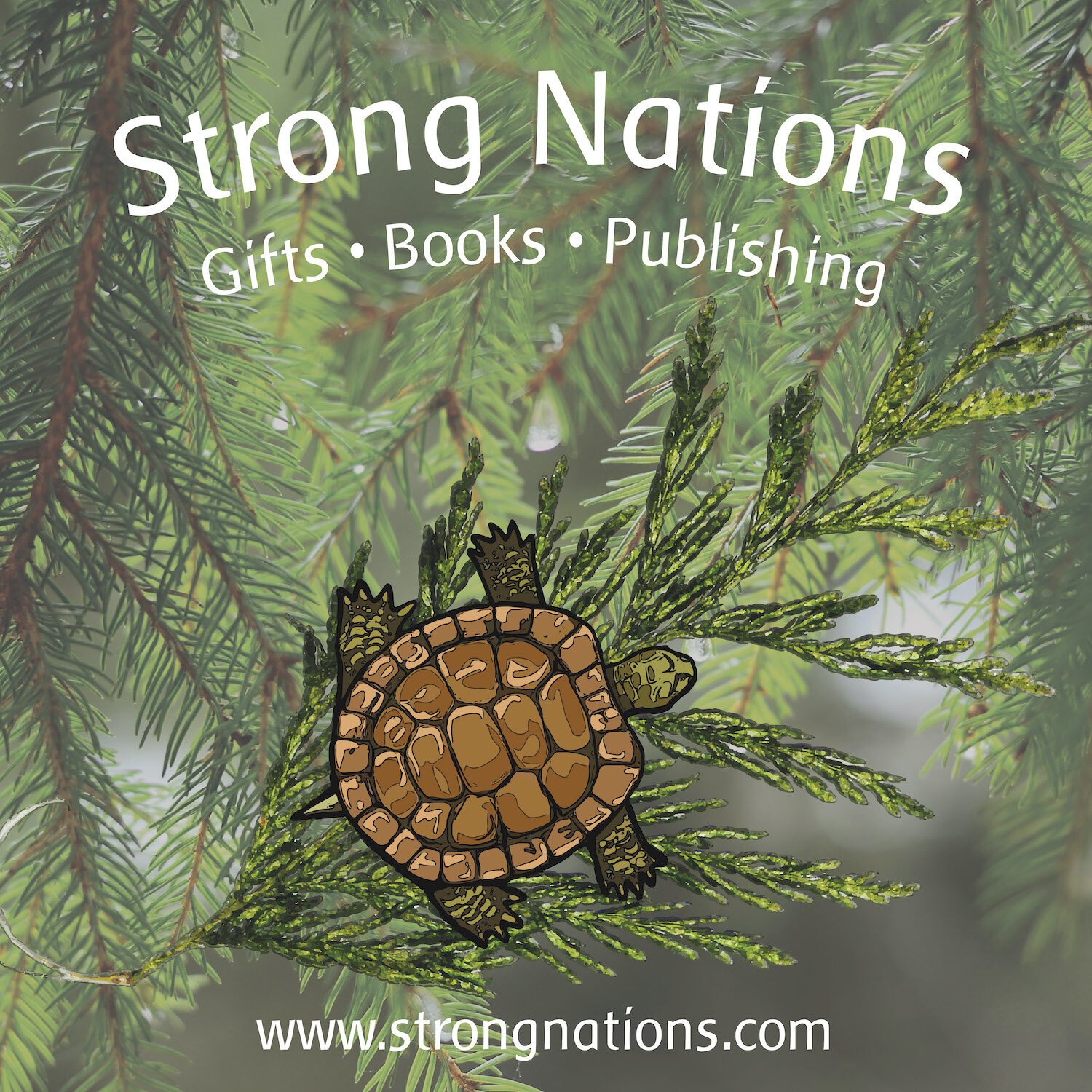
Research
-
![]()
Indigenous Science, Technology and Society
Indigenous Science, Technology, and Society (Indigenous STS) is an international research and teaching hub, housed at the University of Alberta, for the bourgeoning sub-field of Indigenous STS. Their mission is two-fold: 1) To build Indigenous scientific literacy by training graduate students, postdoctoral, and community fellows to grapple expertly with techno-scientific projects and topics that affect their territories, peoples, economies, and institutions; and 2) To produce research and public intellectual outputs with the goal to inform national, global, and Indigenous thought and policymaking related to science and technology. Indigenous STS is committed to building and supporting techno-scientific projects and ways of thinking that promote Indigenous self-determination.
-
![]()
ENRICH
ENRICH is a group of investigators, students and staff that came together in 2013 under a research program funded for six years by Alberta Innovates – Health Solutions (AIHS). One of ENRICH’s objectives was to gain an in-depth understanding of how to better support pregnant women in a large Cree First Nations community with the ultimate goal of improving pregnancy-related health by identifying new and innovative strategies. These strategies were designed with the intention of addressing the unique needs that these women and communities face due to cultural destruction, historical trauma, socio-economic inequalities, and other related factors.
-
![]()
Indigenous/Science
This University of British Columbia research cluster is composed of archaeologists, physical scientists, First Nations communities, scholars in Indigenous cultural traditions and scholars in the philosophy and culture of scholarship and knowledge production. It seeks to catalyze a conversation about science, with specific application to understanding Indigenous history and the environment via both empirical evidence and critical social theory. Their focus includes the Indigenous past, its material and historical manifestations, the environmental context within which it occurred, and the study of this past. Their work is interdisciplinary and overlaps with Indigenous studies, geochemistry, philosophy, archaeology, history, legal studies, anthropology, and museology.
Maad'ookiing Mshkiki—Sharing Medicine
Public Health
Unpacking biomedicine, traditional knowledges and healing practices through oral storytelling and visualizations to support First Nations, Inuit and Métis in making informed choices. This project aims to build on other community-led and allied initiatives that share the goal of advancing access to quality and safe healthcare services for Indigenous communities and meeting the needs of those who are systemically marginalized. Specifically, it aims to provide timely, accurate, trauma-informed, and culturally relevant information about medical concepts related to available COVID-19 vaccinations with the explicit aim of empowering informed consent and decision making of First Nations, Inuit and Métis peoples living in urban and related homelands.
